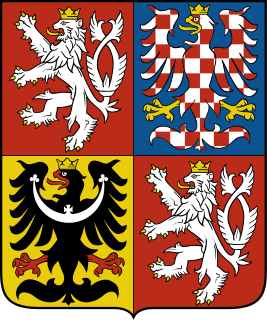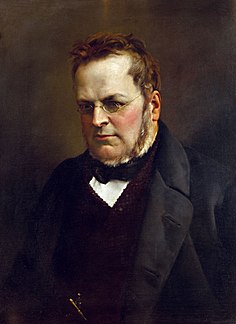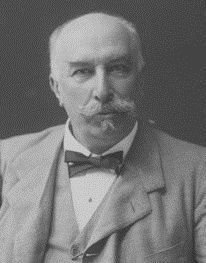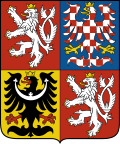
Presidential elections were held in Slovakia on 15 May 1999, with a second round on 29 May. Following a constitutional amendment in 1998 that introduced direct presidential elections for the first time, they resulted in a victory for Rudolf Schuster, who received 57.2% of the vote in the run-off.

Parliamentary elections were held in Macedonia on 18 October 1998, with a second round on 1 November. VMRO-DPMNE emerged as the largest party, winning 49 of the 120 seats, and later formed a coalition government with Democratic Alternative and the Democratic Party of Albanians.

Presidential elections were held in Bulgaria on 11 November 2001, with a second round on 18 November. The result was a victory for Georgi Parvanov of the Bulgarian Socialist Party, who won 54.0% of the vote in the second round. Voter turnout was 41.8% in the first round and 55.1% in the second.

Presidential elections were held in Moldova on 17 November 1996, with a second round on 1 December. Whilst incumbent President Mircea Snegur received the most votes in the first round, he was defeated in the second by Petru Lucinschi.

Parliamentary elections were held in Norway on 21 October 1918, with a second round between 4 and 11 November. The result was a victory for the Liberal Party, which won 51 of the 123 seats in the Storting. Despite receiving the most votes, the Labour Party won just 18 seats, a loss of one seat compared with the 1915 elections.
Early parliamentary elections were held in Albania on 29 June 1997 alongside a simultaneous referendum on restoring the monarchy, with a second round of voting for 32 seats on 6 July. The elections were called as a response to the 1997 Pyramid Crisis. The result was an overwhelming victory for the opposition Socialist Party of Albania, which won 101 of the 151 seats. Voter turnout was 72.6%.

Presidential elections were held in Bulgaria on 27 October 1996, with a second round on 3 November. The result was a victory for Petar Stoyanov of the United Democratic Forces, who won 59.7% of the vote in the second round. Voter turnout was 63.3% in the first round and 61.8% in the second.

Senate elections were held in the Czech Republic for the first time on 15 and 16 November 1996, with a second round on 22 and 23 November. the first after independence. The result was a victory for the Civic Democratic Party, which won 32 of the 81 seats. Voter turnout was 34.9% in the first round and 30.6% in the second.

Senate elections for a third of chamber were held in the Czech Republic on 13 and 14 November 1998 with a second round on 20 and 21 November.

Senate elections were held in the Czech Republic on 12 November 2000, with a second round on 19 November. The result was a victory for the Civic Democratic Party, which won 22 of the 81 seats. Voter turnout was 33.4% in the first round and 21.5% in the second.

General elections were held in Italy on 27 January 1861, with a second round on 3 February. The newly elected Parliament first convened in Turin on 4 March 1861, where, thirteen days later, it declared the unification of the country as the Kingdom of Italy.

The 1874 Italian general election was held in Italy on 8 November, with a second round of voting on 15 November. They were a snap election, called by Prime Minister Marco Minghetti to strengthen his majority.

The Italian general election of 1876 was held in Italy on 5 November, with a second round of voting on 12 November.

General elections were held in Italy on 29 October 1882, with a second round of voting on 5 November. The "ministerial" left-wing bloc emerged as the largest in Parliament, winning 289 of the 508 seats.

General elections were held in Italy on 23 May 1886, with a second round of voting on 30 May. The "ministerial" left-wing bloc emerged as the largest in Parliament, winning 292 of the 508 seats. As in 1882, the election was held using small multi-member constituencies with between two and five seats.

General elections were held in Italy on 6 November 1904, with a second round of voting on 13 November. The "ministerial" left-wing bloc remained the largest in Parliament, winning 339 of the 508 seats. The papal ban on Catholics voting was relaxed for the first time, and three Catholics were elected.

General elections were held in Liechtenstein on 11 March 1918, with a second round on 18 March. They were the first elections held in the country contested by political parties, as the Christian-Social People's Party and Progressive Citizens' Party had been founded that year. The Progressive Citizens' Party emerged as the largest in the Landtag, winning seven of the 12 elected seats.

General elections were held in Liechtenstein on 6 March 1932, with a second round on 13 March. The result was a victory for the ruling Progressive Citizens' Party, which won 13 of the 15 seats in the Landtag. This was the last election contested by the Christian-Social People's Party before it merged with the Liechtenstein Homeland Service to form the Patriotic Union.

Parliamentary elections were held in the Socialist Republic of Macedonia on 11 November 1990, with a second round on 25 November. They were the first competitive elections in the country's history. VMRO-DPMNE emerged as the largest party, winning 38 of the 120 seats.

Parliamentary elections were held in Portugal on 22 November 1822.



















